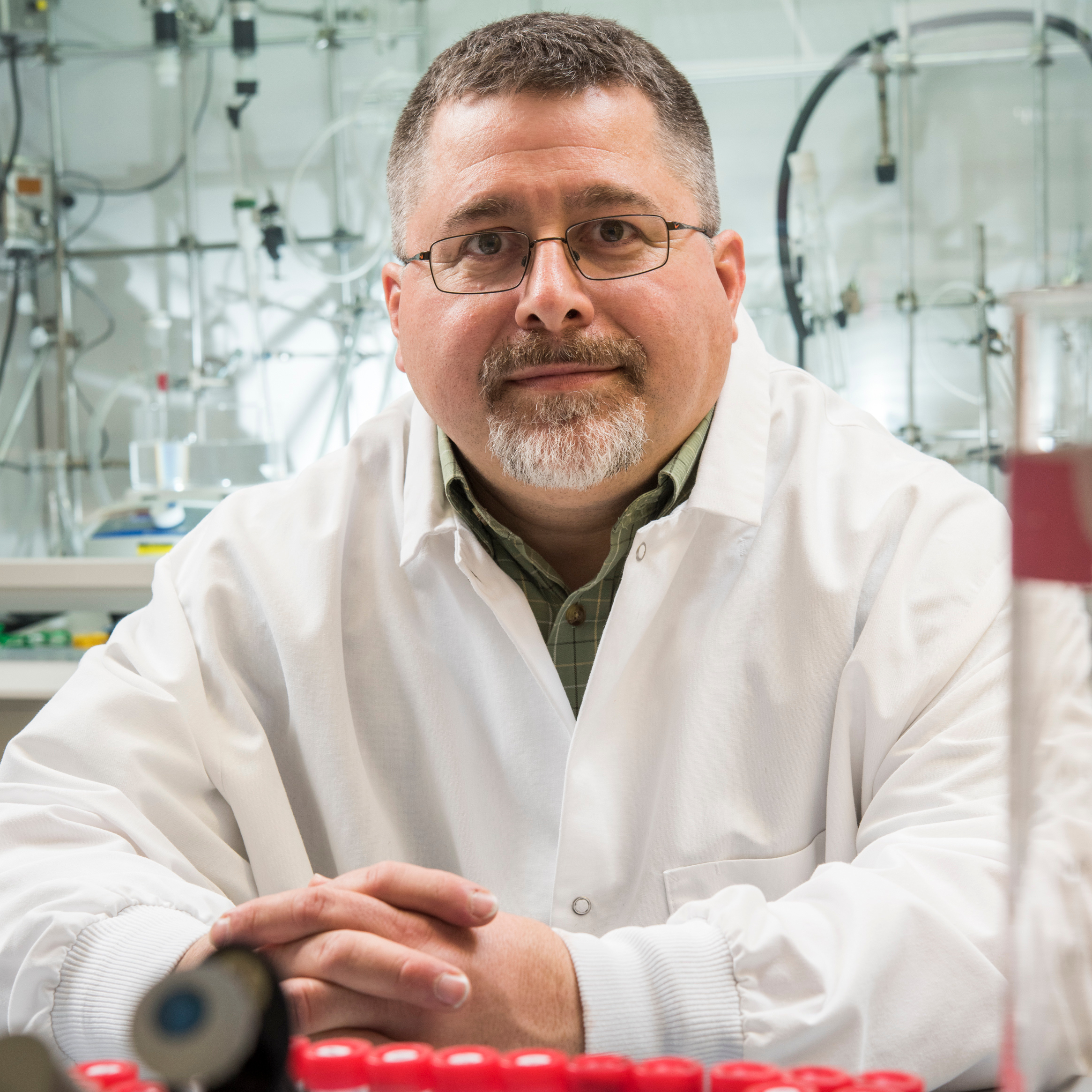
Barney Bishop, PhD
Education
PhD, Chemistry, University of North Carolina, Chapel Hill
Research Focus
Humans and other animals produce a diverse array of biomolecules with potential biomedical applications. We are interested in studying the immune systems of animal species, primarily reptiles (e.g. American alligator and Komodo dragon), and identifying the molecules that they produce to defend against infection. Specifically, we are focused on antimicrobial peptides, which are essentially small proteins that are produced by the animals as part of their immune response to defend against infection. Antimicrobial peptides play complex roles in immunity that include exerting a direct antimicrobial effect as well as modulating inflammation and other aspects of immune response. Our efforts have focused on the identification and development of novel antimicrobial peptides that may provide the basis for developing new antibacterial and antiviral therapeutics.
Current Projects
■ We have developed a bioprospecting-inspired approach to peptide and protein discovery. We continue to develop new bioprospecting technologies and tools for discovering novel bioactive peptides and proteins from biological samples.
■ We are studying the host defense peptides produced by reptiles (e.g. American alligators and Komodo dragons) to identify new antimicrobial peptides as leads for developing new antibiotics against bacteria are resistant to antibiotics currently in use.
■ We are identifying antiviral host defense peptides produced by American alligators and other reptiles in an effort to identify new antiviral peptides as potential leads for the development of new antiviral therapies.
Select Publications
IABR | 10920 George Mason Circle, Manassas, VA 20110
